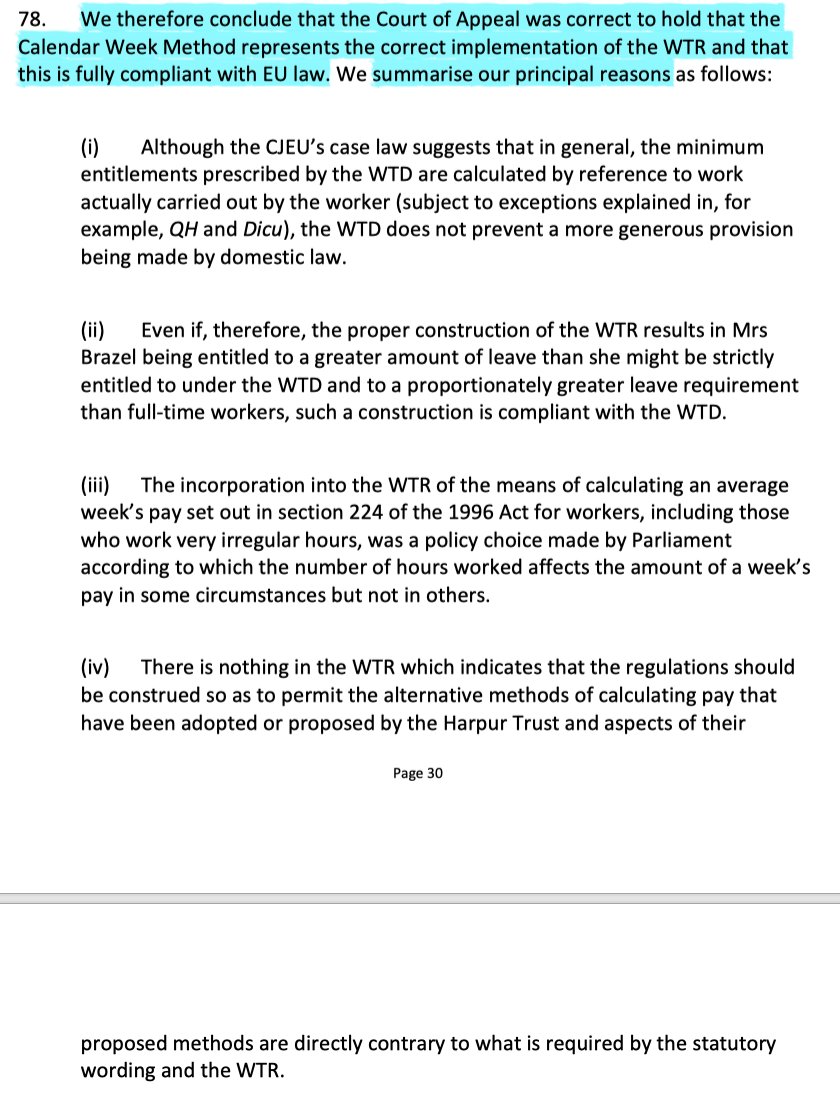
1/ Kumari v Greater Manchester Mental Health NHS: EAT holds in considering whether to allow an amendment & whether it's just & equitable to extend time, the ET could consider against K the merits of the claim even if not meeting the no reasonable prospect threshold. #ukemplaw
2/ In this case, K brought complaints of direct race discrim/harassment, presenting the ET1 a few days out of time. She also sought to amend to add in additional allegations of discrimination. At a PH, the ET declined to exercise discretion to extend time or to allow amendment.
3/ In doing so, one factor considered by the ET was the weakness of K's discrim claims. Presuming she established all the facts alleged, the ET found her case weak on showing any link between those facts and K's race. 



4/ K sought to appeal, principally on the basis that both in exercise of the discretion to extend time & in considering the amendment, the ET ought not to have taken account of the merits of the claims unless they had no reasonable prospect of succeeding. 



5/ On the just & equitable extension issue, the EAT noted the wide wording of s.123 EqA didn't preclude consideration of the merits & that it didn't import the strike out threshold into any consideration of the merits. 

6/ The EAT held an ET can put the merits on the scales if able to point to readily identifiable features which point to weaknesses or obstacles in the claim. The testing of the merits is akin to the process for deposit orders (without applying the same threshold). 





7/ Likewise on applications to amend. Gillett v Bridge 86 supports it being open to the ET to consider the merits as a factor without requiring there to be no reasonable prospects. No other authority contradicted that (K had argued Herry v Dudley did, but the EAT disagreed) 

8/ The EAT once again emphasised the need for the ET to proceed with caution if relying on the merits in refusing an amendment application, keeping in mind it doesn't have the full evidence & that it's not the time to conduct a mini-trial. 

9/ On procedure, the EAT held the ET is not obliged to forewarn the parties that some assessment will be made of the merits. The primary concern is that of a fair opportunity to make representations, & that may often be done without forewarning. 



10/ If someone from the EAT is reading this thread, it should be noted that a crucial "NOT" is missing from the last sentence of para 89 (before 'necessarily'), & would be worth amending. It presents a conclusion at odds with what follows in subsequent paragraphs. 

11/ For those who've reached the end of the thread, here's your reward, a link to the judgment: assets.publishing.service.gov.uk/media/630e466f…
#ukemplaw
#ukemplaw
• • •
Missing some Tweet in this thread? You can try to
force a refresh






